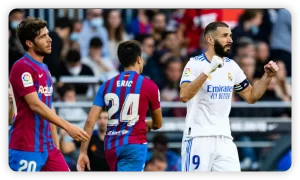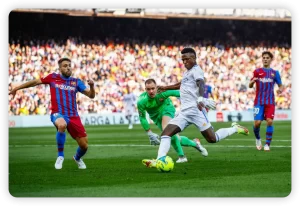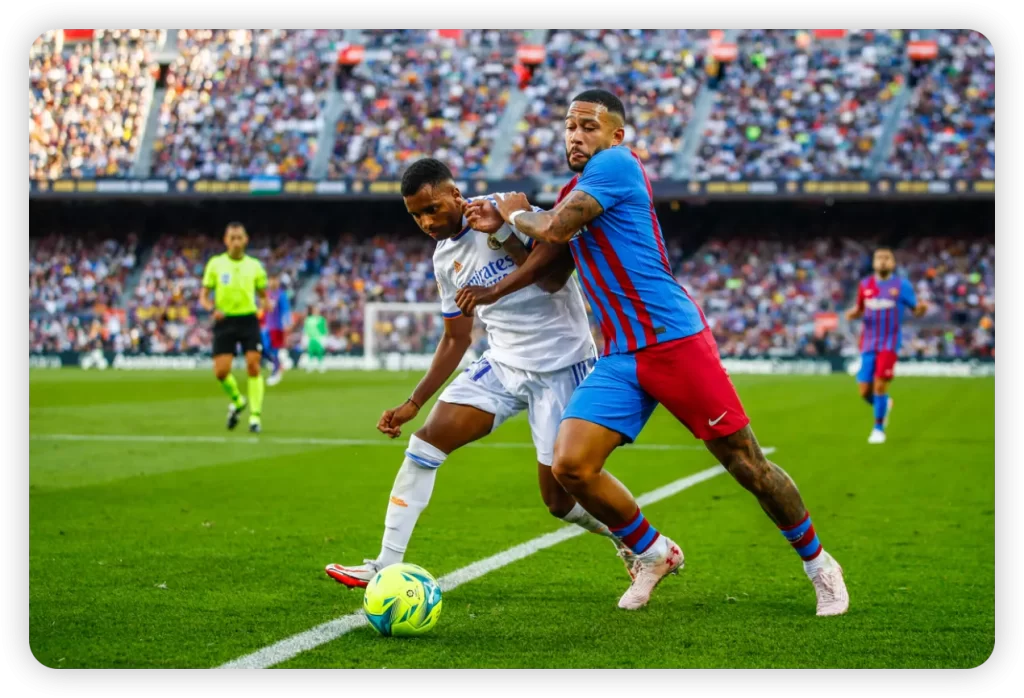La Liga’s Controversial CVC Agreement Faces Legal Backlash
In a dramatic turn of events, Spanish football giants Barcelona, Real Madrid, and Athletic Bilbao have jointly announced their legal challenge against La Liga‘s €2.2 billion private equity deal with CVC Capital Partners. The agreement, known as ‘Boost LaLiga,’ was approved last month by 38 out of 42 clubs across Spain’s top two divisions, promising significant financial injections in exchange for an 11% share of La Liga’s television revenue over the next 50 years.
The three clubs argue that the deal violates Spanish sports regulations and was approved through an “irregular and disrespectful” process. Meanwhile, La Liga insists the agreement will modernize Spanish football and benefit all clubs—except, it seems, the dissenting trio.
Why Are Barcelona, Real Madrid, and Athletic Bilbao Opposing the Deal?
Legal and Financial Concerns
In a strongly-worded joint statement, the three clubs claimed:
“The agreement violates the provisions of the applicable regulations and was adopted within a grossly irregular procedure, lacking the minimum guarantees required for a deal of such magnitude.”
Barcelona further elaborated, stating that their Economic Committee found the deal financially unsound due to its long-term obligations and insufficient returns. Real Madrid, meanwhile, has taken an even more aggressive stance, filing civil and criminal lawsuits against La Liga president Javier Tebas and CVC’s Javier de Jaime Guijarro.

La Liga’s Counterargument
A La Liga spokesperson dismissed the objections, telling Reuters:
“It’s surprising they’re challenging something that doesn’t actually affect them. They would only benefit from La Liga’s growth. The majority of clubs support this project, and we remain confident in its success.”
The league argues that the funds will help smaller clubs improve infrastructure and squad investments, leveling the playing field in Spanish football.
What’s Next for Spanish Football?
Potential Fallout
- Legal Battles: Real Madrid’s lawsuits could delay or even derail the agreement.
- Financial Impact: If the deal collapses, smaller clubs may struggle to secure alternative funding.
- Power Struggle: The conflict highlights the growing divide between La Liga’s leadership and its biggest clubs.

Expert Opinion
Football finance analyst Mark Thompson (The Athletic) weighed in:
“This isn’t just about money—it’s about control. Barcelona and Real Madrid have long resisted La Liga’s attempts to centralize revenue distribution. The CVC deal threatens their financial dominance, so their opposition was inevitable.”
Winbdt Verdict: A Defining Moment for La Liga
The battle over the CVC deal could reshape Spanish football’s future. While La Liga sees it as a necessary modernization step, the rebel clubs view it as an overreach. With legal challenges mounting, the coming weeks will determine whether the agreement survives—and whether Spanish football’s power structure remains intact.
For more in-depth analysis, stay tuned to Winbdt – your go-to source for expert football insights.
What do you think? Should La Liga proceed with the CVC deal, or do Barcelona and Real Madrid have valid concerns? Share your thoughts below!

